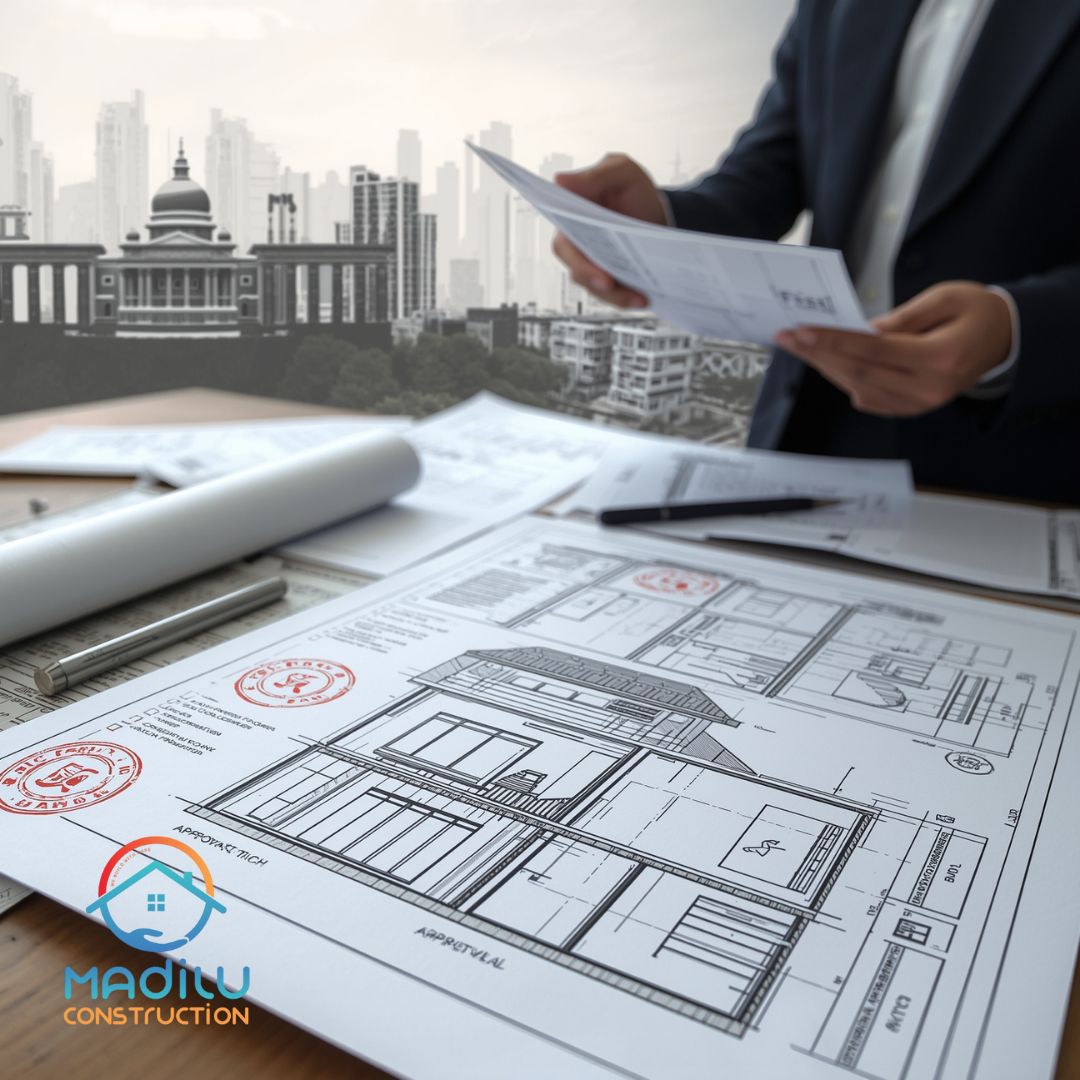Rules & Permits You Must Know Before Building a House in Bangalore
Bangalore is one of India’s fastest-growing cities. With new homes, apartments, and commercial spaces coming up in every corner, the dream of owning a house here is stronger than ever. But building a house is not just about bricks, cement, and design. It also involves a long list of rules, permits, and approvals that you must follow.
Ignoring these rules can lead to big problems like delays, heavy fines, or even demolition of your property. That’s why, before you start construction, it’s important to understand the basics of Bangalore’s building regulations.
At Madilu Construction, we believe that planning is the strongest foundation for a dream home. This guide explains in simple words the key rules and permits you must know before starting construction in Bangalore.

1. Zoning Rules – Where and What You Can Build
Every plot of land in Bangalore is assigned a purpose by authorities like the Bangalore Development Authority (BDA) or the Bruhat Bengaluru Mahanagara Palike (BBMP). This is called zoning.
- Residential zones are meant for houses, apartments, and housing layouts.
- Commercial zones allow offices, shops, and business establishments.
- Mixed-use zones allow both homes and shops in the same property.
- Industrial zones are for factories and workshops.
If you build something that doesn’t match the land’s zone, your building plan can get rejected or you may face penalties later.
2. Building Plan Approval – The First Step to Start Construction
Before you begin construction, your building plan must be approved by BBMP, BDA, or the Panchayat (if your land is in a village area). This plan includes:
- The layout of your plot
- Floor plans and building design
- Elevation drawings
- Proof of ownership of the land
- Compliance with FAR (Floor Area Ratio) and setback rules
Getting this approval ensures that your building is legal, structurally safe, and follows all bylaws. Without it, your construction is considered unauthorized.
3. Floor Area Ratio (FAR) – How Much You Can Build
FAR decides the maximum built-up area allowed on your plot. For example:
- If your plot is 2,000 sq. ft. and FAR is 2, you can build 4,000 sq. ft. in total.
FAR depends on:
- Zone type (residential, commercial, etc.)
- Width of the road in front of your property
- Location within the city (central areas often have stricter limits)
If you build more than the allowed FAR, it is illegal and can lead to fines or even demolition orders.
4. Setback Rules – Space Around Your House
Setbacks are the open spaces you must leave around your house. They ensure ventilation, light, fire safety, and overall urban planning.
- Small plots may require 1.5 to 3 meters of setback.
- Bigger plots or multi-storied buildings require more open space.
If you don’t follow setback rules, you may not get your Occupancy Certificate (OC) and this can affect resale or loan approval later.
5. Height Restrictions – How Tall Can You Build?
In Bangalore, building height is not only about plot size but also about safety. Height limits depend on:
- Proximity to Kempegowda International Airport (aviation rules apply)
- Width of the road adjoining your site
- Zoning rules
For high-rise buildings, you also need Fire Department clearance to ensure safety.
6. NOCs & Clearances – Approvals from Departments
Before and during construction, you will need No Objection Certificates (NOCs) from several departments:
- BWSSB – For water supply and sewage connection
- BESCOM – For electricity connection
- KSPCB – Pollution control clearance (for large projects)
- Fire Department – For tall buildings
These clearances ensure your home has proper utilities and safety measures in place.
7. Occupancy Certificate (OC) – Proof That Your Home is Ready
Once your house is complete, you must apply for an Occupancy Certificate from BBMP or BDA. This certificate proves that:
- Your building matches the approved plan
- Safety and legal norms have been followed
Without an OC, you may struggle to get water, electricity, bank loans, or even sell your property in the future.
8. Green & Eco-Friendly Rules – Building for the Future
Bangalore encourages eco-friendly construction. Some mandatory requirements include:
- Rainwater harvesting systems for all new buildings
- Waste segregation and management
- Solar panels or provisions for solar energy
These not only help the environment but also reduce your water and electricity bills in the long run.
9. What Happens If You Don’t Follow the Rules?
Breaking building rules can have serious consequences:
- Heavy fines and penalties
- Cancellation of approvals
- Demolition of unauthorized parts of the building
- Legal disputes that affect property value
That’s why it’s always wise to take help from professionals like architects, engineers, and trusted builders.
Planning to build a house in Bangalore? Let Madilu Construction take care of the rules while you focus on your dream.
